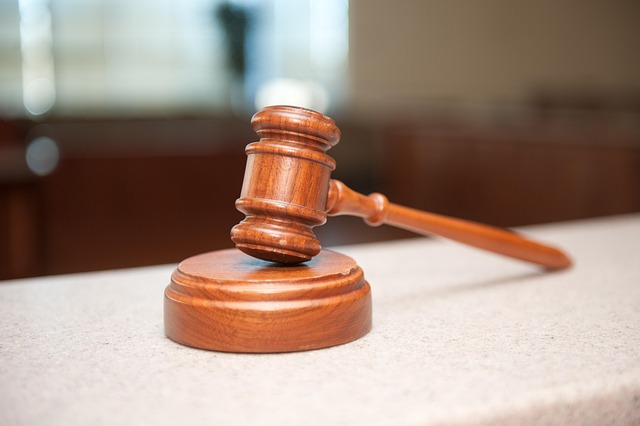Choosing the right law office equipment requires understanding software needs for case management, document editing, and data storage. Ideal computers should handle specialized programs smoothly, while monitors with ample screen space and high resolution enhance multitasking and visual representation of legal documents. Essential monitor features include high-resolution displays, adjustable stands for ergonomic positioning, color accuracy, and built-in speakers. Legal professionals need robust computers and quality monitors; laptops offer portability, while desktops provide more powerful processors. Robust security features like antivirus software, encryption, and privacy filters safeguard sensitive legal data. Budgeting is crucial, as high-quality hardware and software streamline workflows and reduce errors, leading to long-term cost savings.
Selecting the right computers and monitors is essential for legal practices to streamline workflows and enhance efficiency. This guide navigates the process, offering insights on understanding unique software and compatibility needs specific to legal work. From monitor features to computer types, security considerations, and budgeting tips, discover how to make informed decisions about your law office equipment investments. Optimise your technology setup to support your legal team’s demanding tasks and ensure long-term cost savings.
- Understanding Legal Practice Requirements: Software and Compatibility
- Essential Features for Monitors in a Law Office
- Types of Computers for Legal Professionals
- Security Considerations for Law Office Equipment
- Budgeting and Long-Term Cost Savings for Legal Practice Technology
Understanding Legal Practice Requirements: Software and Compatibility
Understanding your legal practice’s specific software requirements is paramount when choosing computers and monitors for your law office equipment. Legal professionals rely on various specialized programs, from case management systems to document editing tools, each with unique compatibility needs. Thus, it’s crucial to select hardware that supports these applications seamlessly.
The right computer should handle complex legal software efficiently, ensuring quick file access, smooth document editing, and robust data management. Monitors play a significant role here, offering ample screen real estate to display multiple documents simultaneously, enhancing productivity. Look for displays with high resolutions and color accuracy to ensure clear visuals of contracts, court documents, and other critical legal materials.
Essential Features for Monitors in a Law Office
When setting up a law office, choosing the right monitors is crucial for efficient work and client presentation. Essential features to look for include high resolution displays, ensuring sharp text and detailed images, which are vital for reviewing documents, legal research, and creating visual aids. Additionally, adjustable monitor stands that allow for ergonomic positioning are important to prevent eye strain during long working hours.
Color accuracy is another significant aspect, as it enables accurate representation of colors in digital documents and evidence presentations. This feature is particularly useful when dealing with graphics, charts, or cases involving visual evidence. Moreover, considering monitors with built-in speakers can enhance collaboration and reduce the need for external audio equipment, making your law office setup more streamlined and modern.
Types of Computers for Legal Professionals
Legal professionals require reliable and efficient computers as essential components of their law office equipment. When selecting a computer, consider its processing power, memory capacity, and storage options to handle demanding legal software and large case files. Laptops are popular choices for their portability, allowing lawyers to work flexibly in court or at client meetings. Desktops, on the other hand, offer more powerful processors and expandability, making them ideal for heavy-duty tasks like video conferencing with multiple parties or running complex legal research applications.
For a law office, investing in quality monitors is equally crucial. High-resolution displays with adjustable stands ensure comfortable viewing angles and reduce eye strain during extended work hours. Some attorneys prefer larger screens to accommodate multiple windows simultaneously, enhancing productivity. Additionally, touchscreens can facilitate intuitive navigation through legal documents and case management software, streamlining workflow efficiency.
Security Considerations for Law Office Equipment
In the digital age, securing sensitive legal data is paramount for any practice. When selecting computers and monitors for a law office, it’s crucial to invest in equipment with robust security features. Start by choosing devices with up-to-date antivirus software and regular automatic updates to protect against malware and cyber threats. Enable two-factor authentication for an extra layer of defense. Additionally, look for hardware that offers encryption capabilities, ensuring data stored on the device remains secure even if physically accessed.
Monitors play a significant role in security, too. Opt for screens with privacy filters to prevent unauthorized viewing of confidential cases. Ensure the display adjusts automatically when someone approaches from the side or back, preventing shoulder surfing. Regularly update monitor firmware and use display settings that minimize reflection, reducing the risk of unseen data breaches through transparent glass surfaces.
Budgeting and Long-Term Cost Savings for Legal Practice Technology
When equipping a law office, budgeting is a critical aspect to consider, as technology in legal practice can be a significant investment. While initial costs for computers and monitors might seem high, they are essential assets that can offer long-term cost savings. High-quality hardware and software solutions streamline workflows, reduce manual errors, and improve overall efficiency, leading to better resource allocation and potentially lower operational expenses over time.
Moreover, investing in durable and reliable law office equipment ensures longevity, minimizing the need for frequent replacements. This is particularly important for legal practices, as these technologies often handle sensitive data and require consistent performance during court proceedings or document reviews. Therefore, a well-planned budget that accounts for both initial outlays and long-term savings can empower legal professionals to make informed technology choices for their practice’s success and sustainability.
When equipping a law office with computers and monitors, it’s essential to balance advanced features with your specific legal practice needs. By understanding software compatibility, selecting monitors with ideal display qualities, choosing appropriate computer types, prioritizing security, and planning for budget-friendly long-term investments in technology, you can ensure your law office equipment enhances productivity and supports efficient case management.
